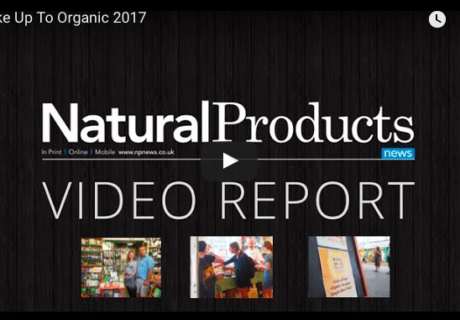At a special HFMA Brexit seminar in London this week senior representatives from three government departments urged natural products companies to step up the pace of their preparations for Brexit.
Tim Render, deputy director and head of the Great British Food Unit at Defra, said that Britain was “entering into negotiations of the like we have never experienced”.
Render reminded delegates that Britain and Europe had a “hugely integrated relationship with the EU” in the area of food and food ingredients. But he emphasized that the negotiations with the EU would be just that, negotiations. “We are Denmark’s biggest market for bacon, France’s biggest market for wine and Spain’s biggest market for fruit and vegetables by a long way. So this is serious for everyone.”
Theo Leonard, stakeholder lead at the Department for Exiting the EU (DexEU) said there was a “set of common themes from business, including access to qualified people, frictionless trade, regulatory equivalence, free travel of data and law (for example, business contracts)”. He added: “The plea from us is for preparedness. Start thinking about these things. Ask what would a no-deal agreement would look like for your business.”
The plea from us is for preparedness. Start thinking about these things. Ask what a no-deal agreement would look like for your business”

Theo Leonard
Leonard urged companies to “proactively think about where the opportunities for you company might lie”. And to the wider natural products industry, he said: “The more you can base your argument on evidence, the better”.
Rosa Wilkinson, director of stakeholder engagement at the Department for International Trade, told delegates: “This is a really interesting moment for your industry, as your products become more mainstream and more people want to take control of their health. There’s a particularly big opportunity in the world’s emerging economies, and the growing middle class.
“Brexit is also about taking control of our affairs. Europe has a £60 billion trade surplus with the UK. They don’t want to lose that.”

Rosa Wilkinson
Looking at opportunities, she noted that the UK currently has no formal trade deals with the US, China and India. “We already have working groups for these countries, as well as for Australia and New Zealand, so exploratory conversations are already taking place.”
The seminar also brought together business leaders and regulatory specialists. James Ashton-Bell, head of trade and investment at the CBI, stresssed that “engagement is key”. He said that, compared to many other countries, Britain had “quite a way to go” before it could claim to be a great trading nation. Around 10-15% of British companies had no export business, he said. The benefits of developing exports were multiple, he added. “Three quarters of exporting businesses are profitable, many significantly so. Companies who have export business also have significantly higher productivity.”
“The biggest threat? – “keeping all the red tape, still having to comply with everything coming from Brussels and EFSA, and adding our own!”
Robert Taylor, senior vice president at leading UK supplements brand Vitabiotics, gave a company perspective on Brexit. Businesses, he said, needed to pay attention to both general considerations – for example margin erosion risk, the fall in Sterling, staff and patent issues – and issues specific to VMS businesses. Applying a SWOT analysis to the latter, he said ‘strengths’ included the industry’s track record of punching above its weight, and the opportunity to directly influence those making future UK legislation, while ‘weaknesses’ included the lack of a finalized UK industry position, the industry’s (relative) small size and a lack of future influence over EU legislation; ‘opportunities’ included a focus on wider export opportunities outside the EU, and reduction in the burden of excessive and inappropriate regulation, while ‘threats’ included a loss of influence in Europe (with the UK adopting EG regulations anyway) and increased trade barriers.

Robert Taylor
Asking the question ‘if we could get just one Brexit benefit, what would it be?’, Taylor opted for “removal of the Article 5 MPL threat that has been hanging over our industry since 2009.” The biggest threat, he said, would be “keeping all the red tape, still having to comply with everything coming from Brussels and EFSA, and adding our own!”.





